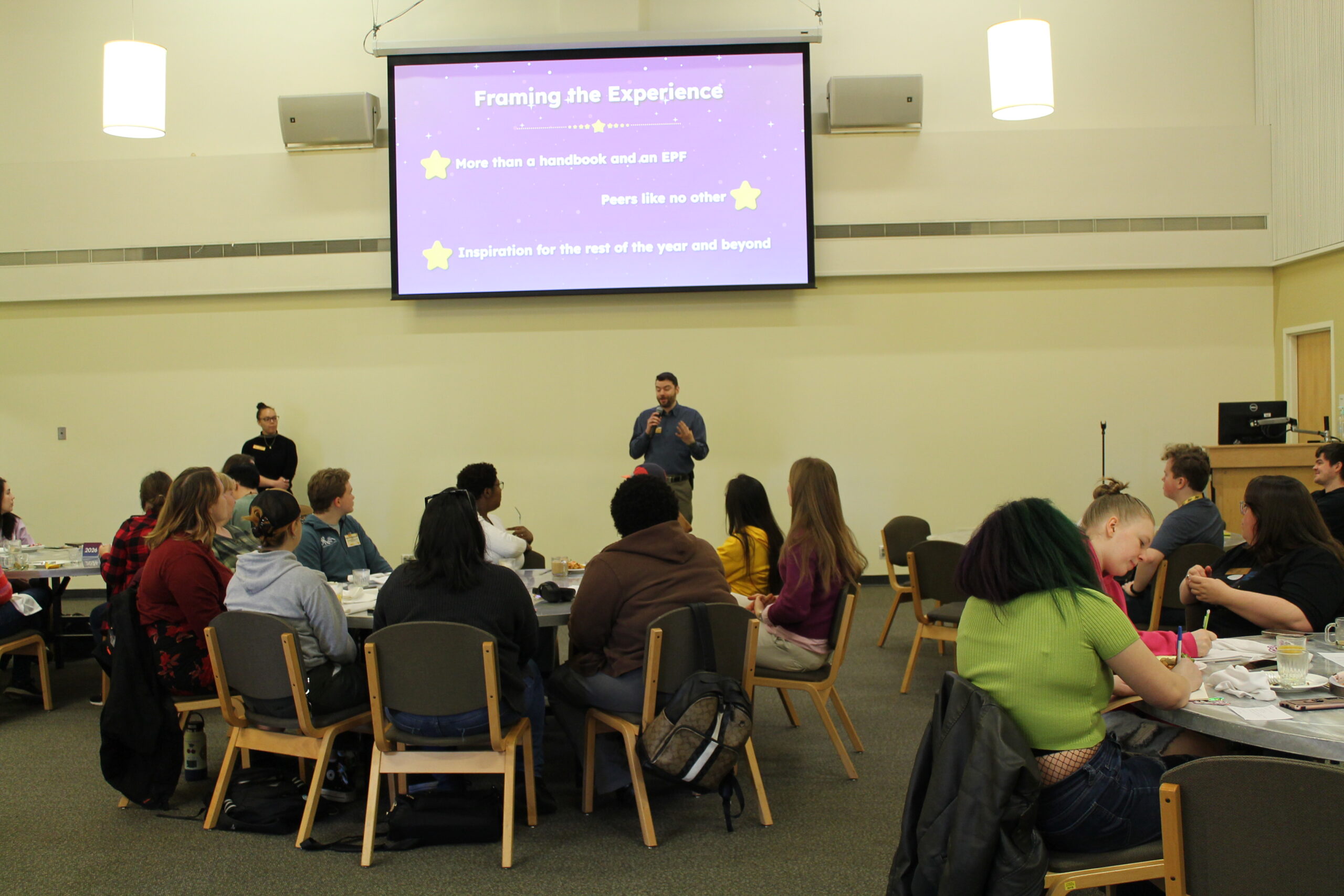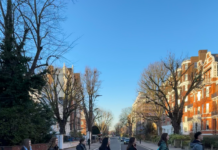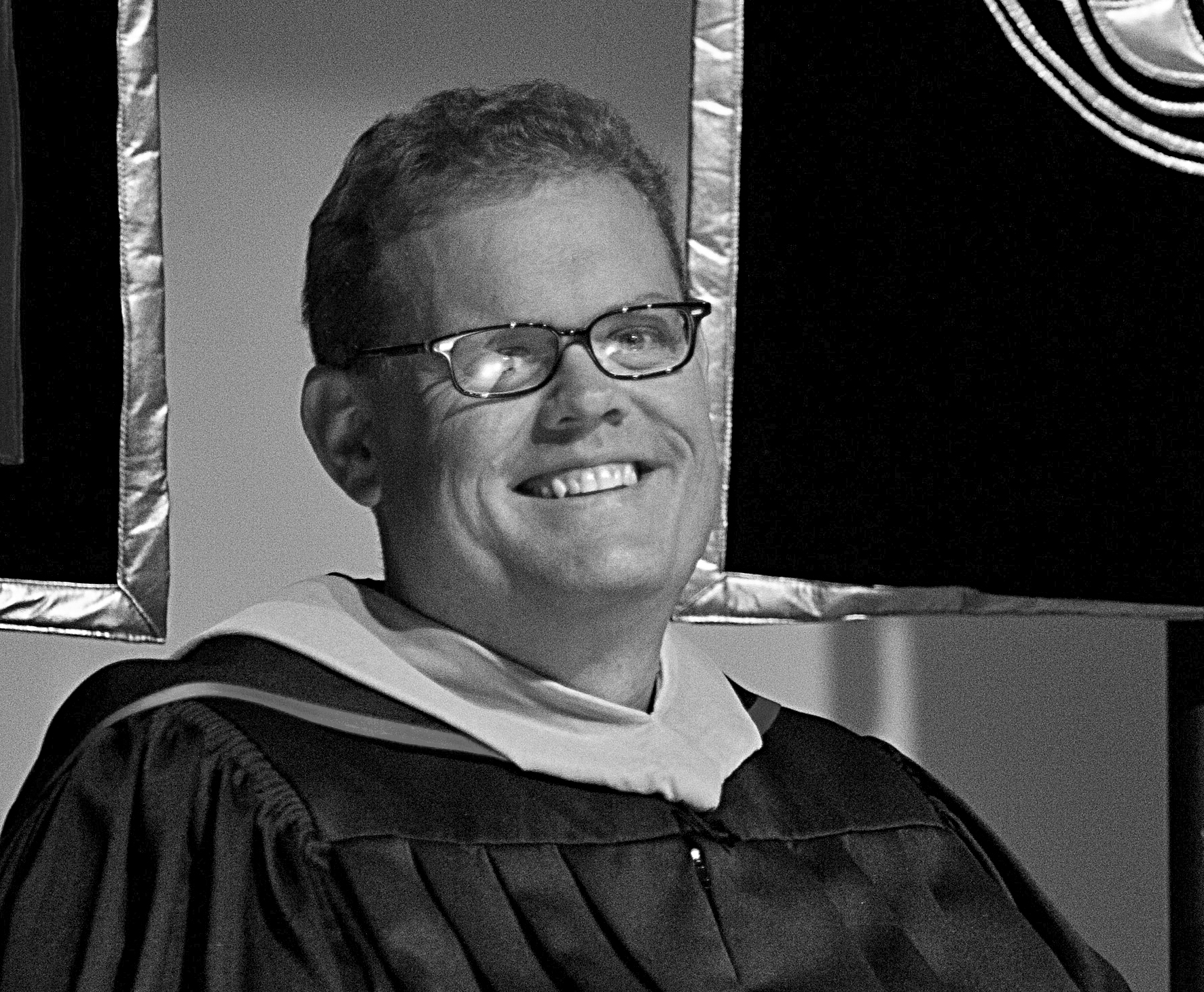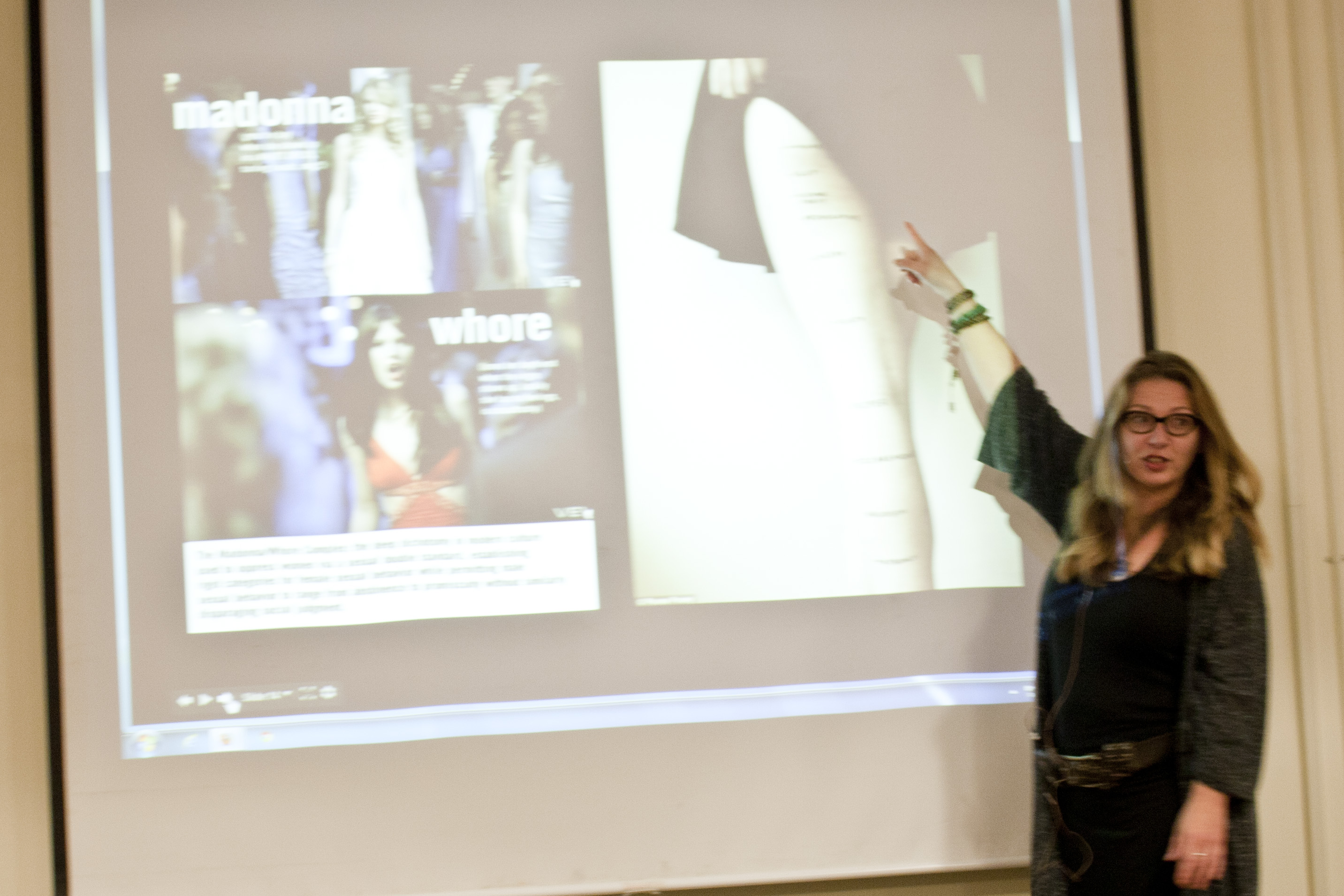On March 1, club leaders from all across campus gathered in the AUC Regency room for a Club Boost. The attendees filtered to the tables, and the chatter began as the brunch was served. Pamphlets on the tables reminded the participants
of the panel topics, ranging from club legacy to club collaboration, event planning, and fundraising.
Part of the freshly revitalized club team, Walter Lutsch is the new associate director for campus life engagement. With the support of the club team, he designed and planned the event to support student leaders. In his first year at PLU, Lutsch has taken on overseeing the club system, supervising three of PLU’s
Community Directors, and chairing the selection committee for hiring Campus Life student leaders. He has worked in the community and technical college system with clubs for the last 10 years. He explains that “The whole reason I’m in this
career is because of clubs. I went to Western, and I had this really strong passion to create a radio theatre program. That was my thing. I was going to do it. I was that student who was bugging administrators and wouldn’t take ‘no’ for an answer
when they thought it wouldn’t work.” Now that he’s one of those same administrators, his perspective has broadened past the joy he retains from being in a club. He explains that clubs continue to matter to him because “It’s some of the best opportunities for students to build their confidence, gain their skills, and to recognize that they’re professionals and capable of doing really tremendous things.”
Lutsch describes Club Boost as a mini-leadership conference that aims to capture the moment of change in clubs, when seniors start considering life outside of college and have to find their replacements. Club Boost 2025 upheld his vision.
The graduating students gathered for the panel Club Legacy during the first session, and Lutsch introduced the idea of a legacy document. “Basically a message in a bottle between you and all of your successors about what it’s like to do your role in the club—give some helpful resources and connections across
campus so that club knowledge doesn’t die away when you leave.” The other panel for seniors was Speak Your Leadership Experience, where attendees were shown how to incorporate experience from club leadership into resumes. The rest of the panels covered nearly every topic the audience could ask for. For those concerned
about the reality of keeping the peace, Student Leadership covered the ins and outs of complex club social dynamics and how to handle difficult times. Part of the reason Lutsch thought to hold Club Boost was because student leaders came to
him to ask for advice resolving interpersonal conflict. At the event, an attendee shared with The Mast that the difficulty resolving awkwardness in their club was the reason they came, and they felt so much better now that they knew what to do if the situation escalates. Club events were the focus of multiple panels, including Event Planning, Event Inclusion and Accessibility, and Club Collaboration. For the ever-pressing issues of recruitment and funding, there were Marketing and Social Media Strategies or Fundraising. All the students in attendance left in a whirl of chatter—much louder than before—that showed that they had not only made connections with the club leaders around them but were enthusing to-
gether about what they had just experienced. Echoing the ethos of the
event, Lutsch states that “I am not a faculty member. I do not have a
standard classroom. Nonetheless, us working in student leadership—we
teach—we teach student leadership, and this is our classroom. Clubs and
the club experience. Our job is to teach you how to do that better.”
When asked what went well during Club Boost, Lutsch immediately answered, “Engagement.” He explained that the students who came to Club Boost were more prepared than he could have expected. Sounding surprised but delighted,
he described how it was clear that the attendees had carefully thought about which panels to go to. In fact, the club team got “overwhelming feedback that people wanted to be able to go to more of the panels because having to choose between options was difficult when they came into each presentation with specific questions they wanted to ask and specific skills they wanted to learn about.” Just one of several changes Lutsch is planning for next year is addressing that by adding a third session. The trial run is over, and now that Club Boost is anticipated by student leaders, Lutsch encourages clubs to send multiple officers to the
event next time to get more information. Even further, he explained that the club team decided that the event would be for all student leaders. “This is open to RAs, students working in the library. Any position across campus where you’re a student and you’re working in leadership.” Ultimately, the goal is to provide clubs with a structure by holding an event at the beginning of the year to kick off the clubs, Club Boost in the middle to support the transition, and Club Renew at the
end of the year to send off the seniors and welcome in new members.

















